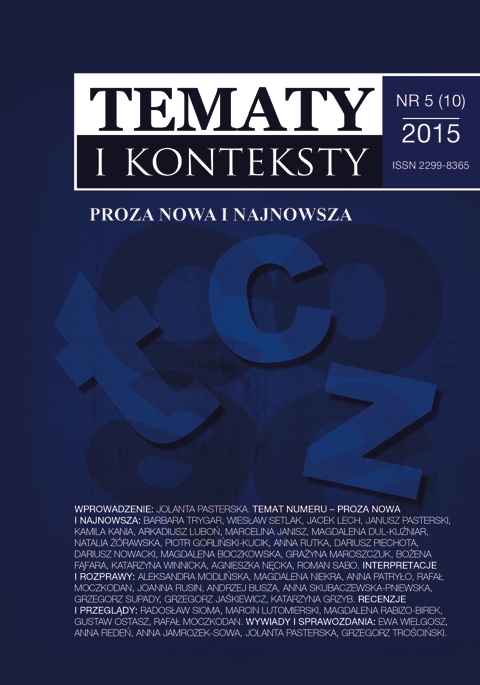Lord Jim Conrada i Zbrodnia i kara Dostojewskiego: aksjologie kontrastywne
Słowa kluczowe:
Dostojewski, Conrad, aksjologie kontrastywneAbstrakt
Kiedy pół wieku temu autor tego artykułu rozpoczynał studia nad twórczością Josepha Conrada, w literaturoznawstwie wciąż dominowały tezy Nowej Krytyki, która twierdziła, że właściwe badanie odnosi się tylko do samego tekstu, pomijając w zasadzie kontekst historyczny, osobę pisarza, a także horyzont oczekiwań czytelników. Autor jednak opowiadał się za mniej „czystym”, a bardziej kontekstualnym podejściem, szczególnie w przypadku pisarzy tak związanych z rzeczywistością historyczną, jak Conrad i – może nawet bardziej – Dostojewski. Znajdując uzasadnienie dla swojego podejścia w „logice pytań i odpowiedzi” angielskiego filozofa R. G. Collingwooda, autor twierdzi, że "Zbrodnia i kara" Dostojewskiego i "Lord Jim" Conrada przedstawiają różne odpowiedzi na dziewiętnastowieczny kryzys wartości, szczególnie w sferze etyki. Conradowskie postrzeganie ludzkiej natury jest zasadniczo ironiczne, a jego wizja potrzeb człowieka jest hierarchiczna. Ludzką powinnością moralną i miarą naszego człowieczeństwa jest dyscyplinowanie i sublimacja niższych instynktów i namiętności. Dostojewski natomiast podkreśla niebezpieczeństwa spaczonego racjonalizmu i umiejscawia dobroć w naturze i ludzkim sercu. Jest to jednak wizja paradoksalna, ponieważ znajduje on tam również okrucieństwo, chciwość, egoizm i ślepe namiętności. Człowiek Dostojewskiego jest więc – jak jego świat – rozdarty przez sprzeczności nie do pogodzenia, które mogą być tylko transcendowane.
Downloads
Pobrania
Opublikowane
Jak cytować
Numer
Dział
Licencja
Prawa autorskie (c) 2015 Tematy i Konteksty

Utwór dostępny jest na licencji Creative Commons Uznanie autorstwa – Użycie niekomercyjne – Bez utworów zależnych 4.0 Międzynarodowe.




